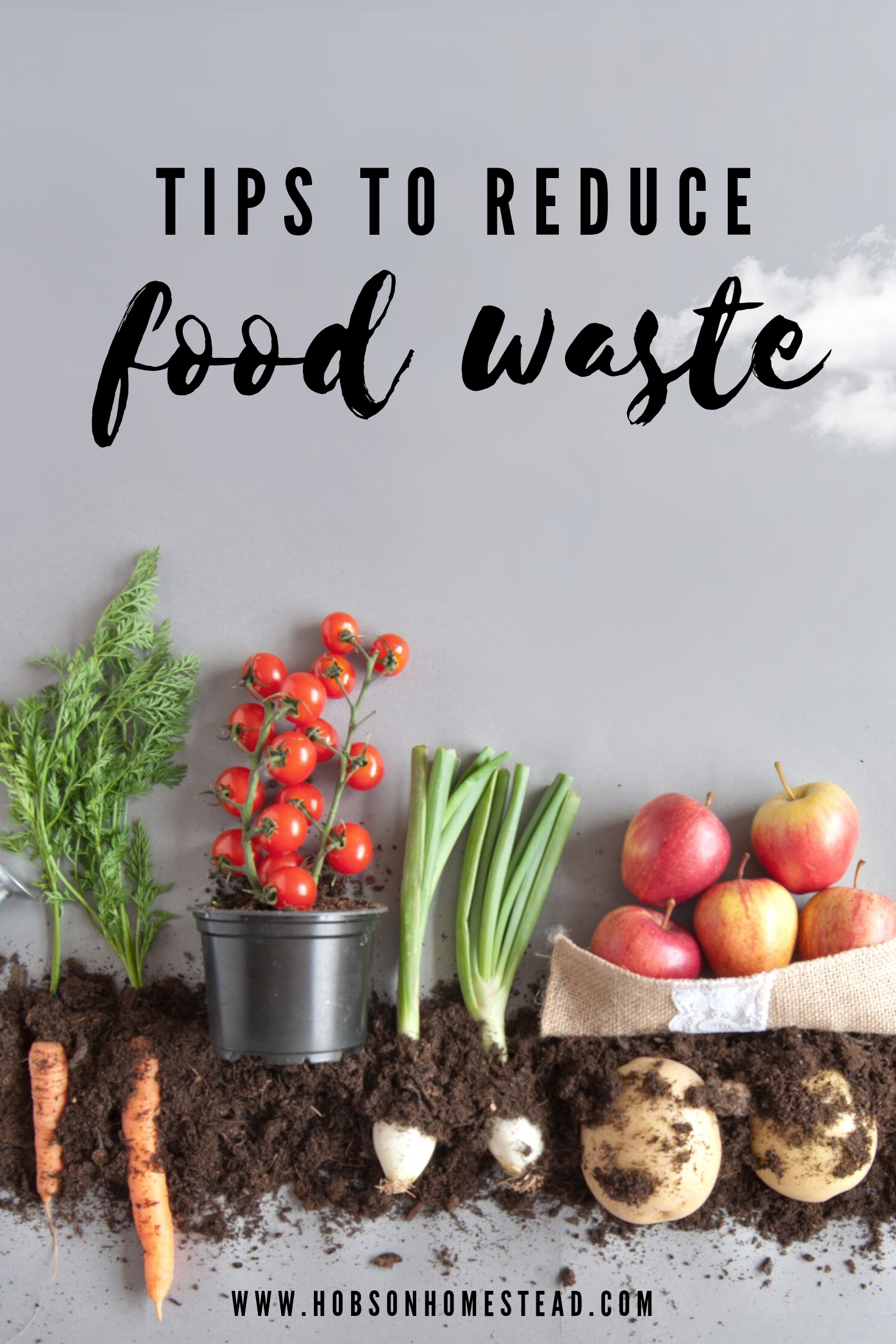Did you know that one third of the food produced for consumption every year is wasted? (source) That’s 1.3 billion tonnes and the majority of it is produce in the form of fruits and vegetables.
Food waste is a hot topic in our house. It is very rare that we throw food out because a) we tend to buy expensive food (organic and alternative), b) we have a larger family (four kids) and c) there are other things to do with extra food.
If you’re cringing at the amount of food you’re throwing out each week, here are some ideas for how to reduce food waste.

Tips to Reduce Food Waste
Dip small portions: We dip small portions for our kids because we never know what meal they’ll scarf down and ask for seconds and what meal they’ll just pick at. It’s safer for us to dip a small portion and then give them a second helping if they are still hungry.
Save uneaten leftovers: Kids are notorious for not finishing their food. I don’t like the concept of forcing them to finish a plate if they say they aren’t hungry. Instead, we tell them that’s fine, they don’t have to finish but we will save their leftover food for the next lunch or dinner.

Preserve: If you buy or grow food in bulk and can’t use it fast enough, there are other ways you can reduce food waste. Freezing, canning, pickling and dehydrating are great ways to preserve your food to waste less while stocking your freezer or pantry.
Cook a catch-all soup or stew: When I am given extra veggies or realize I have some leftover produce in the fridge, the simplest way to use it up without wasting it is to cook a catch-all soup. Throw in veggies, broth/stock, a meat and spices and you’ve got an all-in-one meal. If you don’t trust your cooking skills enough to wing it, search Pinterest for the ingredients you have and I guarantee you there is a recipe that will fit your needs.
Make homemade stock: If you have mirepoix (carrots, onion, celery), you can make any type of homemade stock. Veggie stock is an easy one, but if you have a leftover meat carcass such as chicken or turkey, simply throw it in with the mirepoix and let it cook down even longer to make super healthy bone broth. I often make stock on the stovetop, but you can do it in the instant pot as well to speed things up.
Roast veggies: If your veggies are turning soft too quickly, instead of throwing them out, try roasting them. Roasting vegetables not only brings out a ton of flavor, but it also crisps them up. Season with oil and basic spices such as salt, pepper and garlic powder.
Make a smoothie: If you have fruit that is over-ripened, a smoothie is a great idea. When I have several brown bananas at the same time, I peel them, cut in half and flash freeze them before putting in a freezer bag. Then I pull out one every time I want to blend a smoothie.
Bake a dessert: Over-ripened fruit is also perfect for baked desserts. From banana bread to chocolate chip zucchini bread to fruit cobblers, there is the perfect recipe out there for your super ripened fruit.
Choose the right storage: The way you store your food plays a big role in how long your food will last. Use air-tight containers for pantry or shelf items, opaque breathable storage for potatoes and onions, and produce savers for fruits and veggies if your fridge drawers don’t offer good storage options.
Meal plan: Planning out your meals for the week not only saves you money and time, but also helps you to buy exactly how much you need and prioritize when you cook. Plan to use fresh veggies earlier in week so they don’t spoil and save the shelf-stable ingredients for the end of the week. {See my Meal Planning Tips.}
Meal prep: Once you’ve planned your meals, you can get a jumpstart on your week by cutting up veggies and prepping or cooking meat ahead of time. This will cut down on the time you spend preparing dinner each night and help to ensure you don’t waste any food hiding in the back of the fridge.

Compost: If produce is past the point of any return, you can always compost it. At our last house, we had a large compost pile where we dumped all the food trimmings. And considering I cook from scratch most meals, we have a lot of trimmings. All the produce peels and cores and rinds and seeds went into that pile and we used its dirt to grow our tomatoes. Even if you don’t have space or desire for a yard compost pile, you can compost in a yard tumbler (smaller and tidier) or a small bin that stays in your kitchen.
Feed to pets or animals: We don’t have animals, but many people feed their table scraps to family pets or animals on their property to avoid food waste and also to save on animal food.
Cook in bulk: If you have a bunch of food that you’re worried may spoil, spend a couple hours one day to cook it all. Oftentimes, I’ll prep two casseroles and freeze one casserole for a busy night. Cooking in bulk not only reduces food waste, but is a more efficient use of your time.
Use leftovers for lunch: Leftover are like gold in our house. They make lunch easy for me when I’m at home all day and make it easy to send the husband to work with something healthy.
How do you reduce food waste?


[…] Latest blog post: 15 Tips to Reduce Food Waste […]